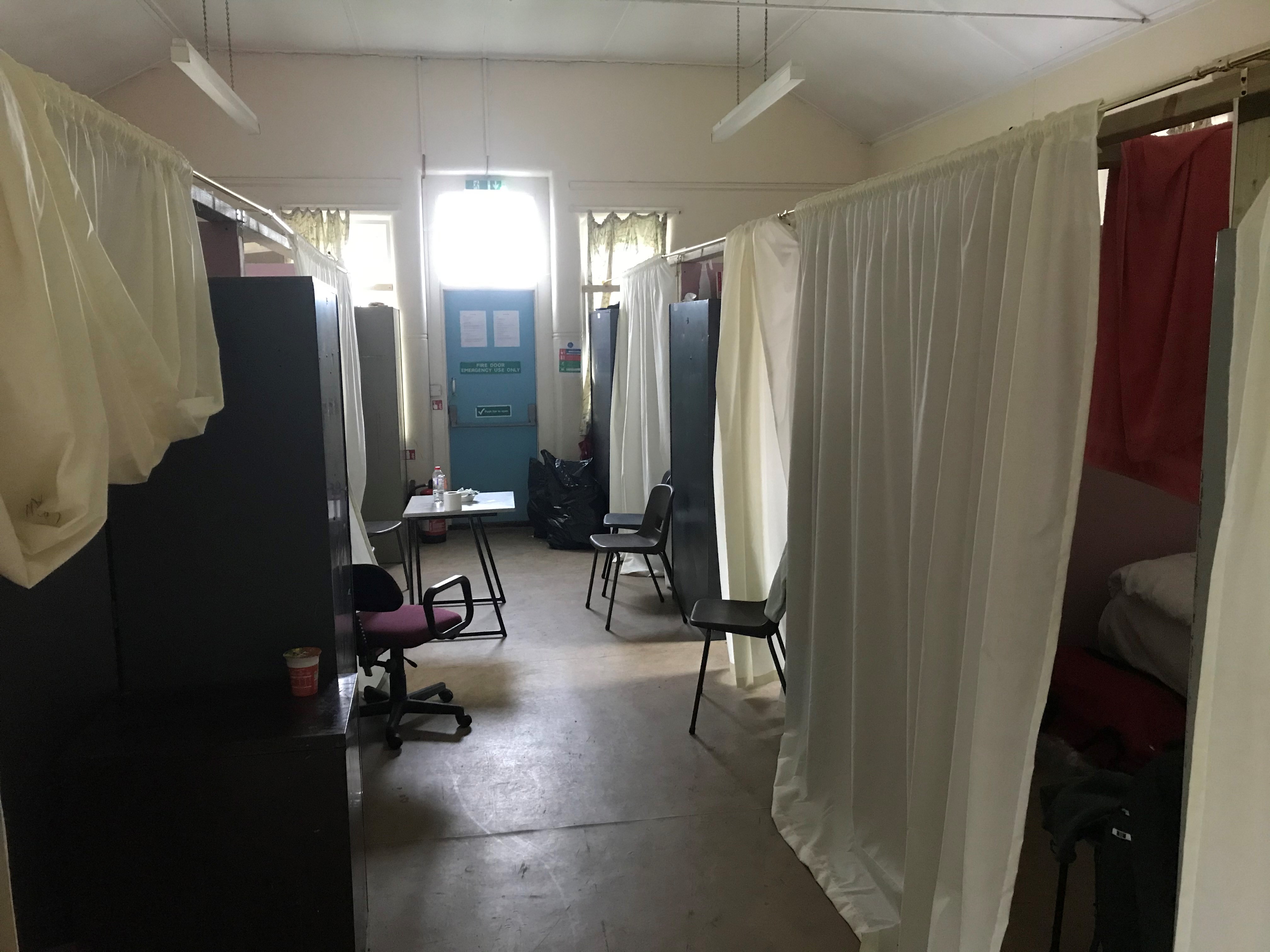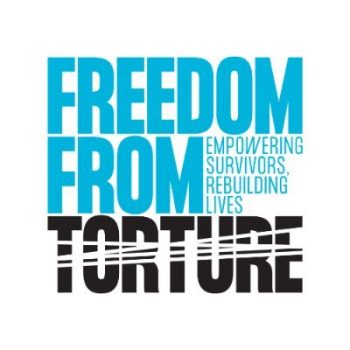“Cramped”, “filthy”, “impoverished and unsuitable” is how an army barracks used by the Home Office to house asylum seekers is described in this government report.
In November 2020, UK healthcare professionals coordinated by Doctors of the World, wrote a letter to Home Secretary Priti Patel raising concerns that housing asylum seekers and survivors of torture and modern slavery in military barracks was “clinically inappropriate”. A month prior to this, the Welsh Government expressed similar concerns about the suitability of Penally army camp, a housing base in Pembrokeshire, believing it “does not meet the basic human needs of people seeking a new life in the UK”.
In January and February this year alone, 197 asylum seekers tested positive for COVID-19 in both the Kent-based Napier Barracks and Penally sites, Home Office Permanent Secretary Matthew Rycroft informed the Home Affairs Committee. This does not come as a surprise as charities, clinicians, lawyers, barrack residents and activists warned about the dangers of housing asylum seekers in disused army barracks with up to 28 people sharing a single dormitory during a pandemic.
Around 350 of the 400 men housed at Napier Barracks went on hunger strike in January in protest over cramped and unhygienic conditions, the spread of COVID-19, and a lack of information about their asylum claims. Later that month, a fire broke out at the site, disabling the heating, electricity and water supply, leaving residents to drink non-potable water.
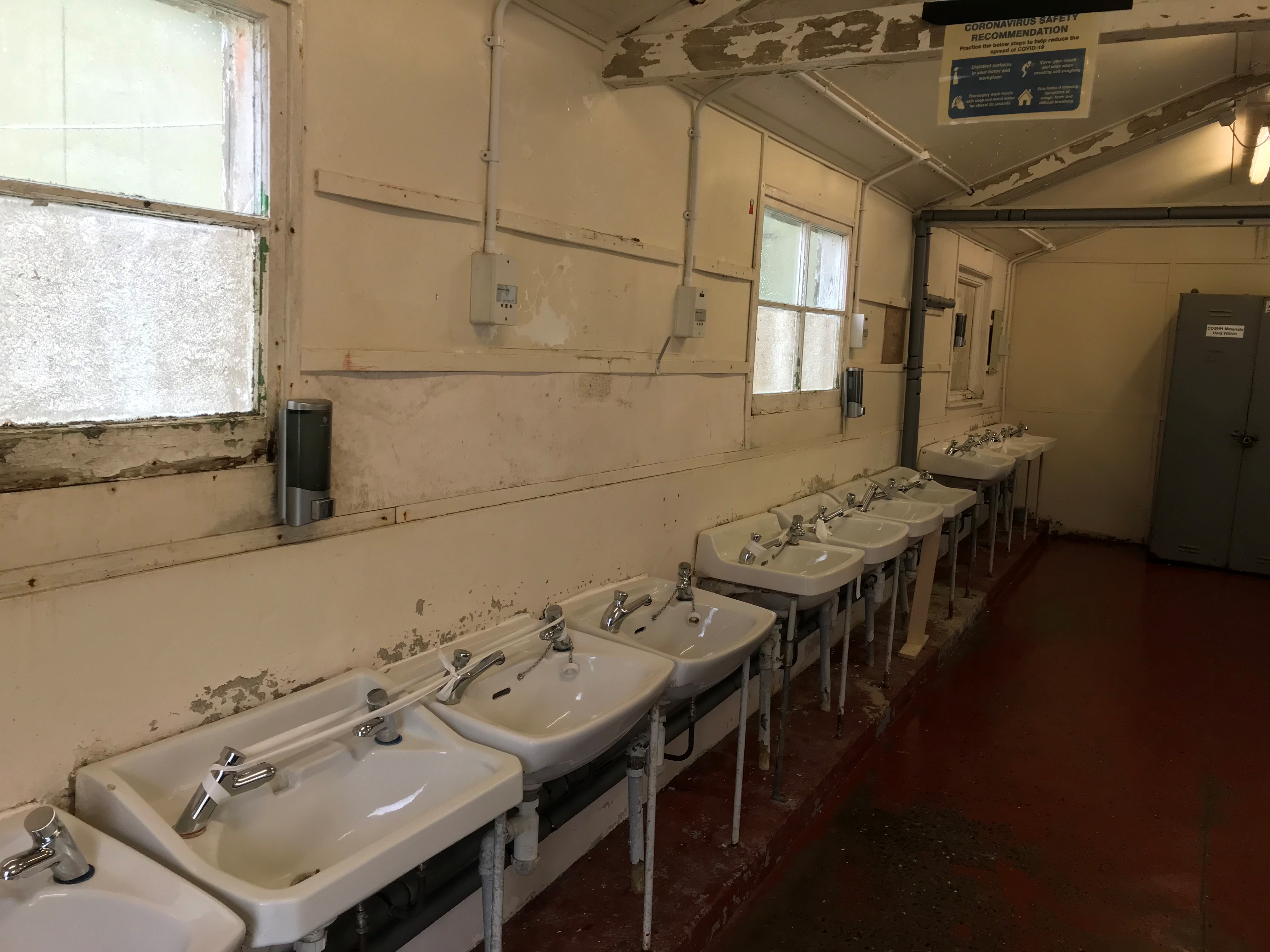
The ICIBI / HMIP investigation includes images that show conditions inside the barracks, e.g. a washroom inside Penally Camp (Credit: ICIBI / HMIP)
Charities Choose Love and Freedom from Torture have shared testimonies and open letters from past and present residents of Napier Barracks, detailing the fear and hopelessness felt over the way they have been treated.
“We are shocked and saddened to learn that the Government is sending a new cohort of people seeking safety into the dangerous, disused army barracks that its own report called ‘unfit for human habitation’,” says Sonya Sceats, chief executive of Freedom from Torture.
Asylum seekers housed at Napier Barracks received a letter from Clearsprings, the private firm managing the site, informing them that due to the spread of COVID-19 within the facility, they would not be allowed to leave the premises and could face arrest if they did. Residents have alleged Clearsprings staff threatened asylum seekers that if they “misbehaved” their applications for asylum would be adversely affected.
What are the human rights implications?
International human rights law recognises the right to an adequate standard of living, which includes adequate housing. This features in both the 1948 Universal Declaration of Human Rights and the International Covenant on Economic, Social and Cultural Rights, which the UK agreed to follow in 1976.
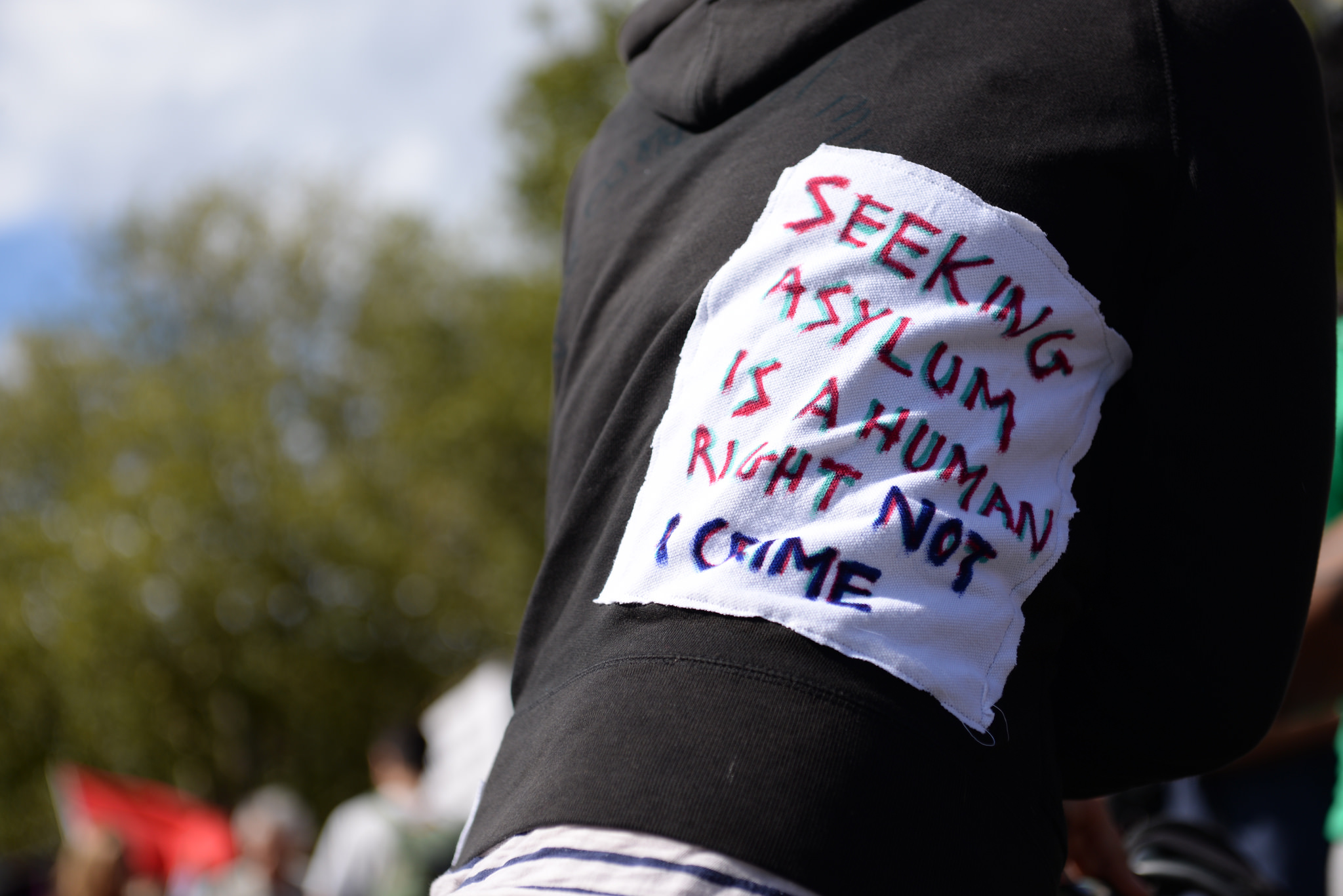
Although people claiming asylum are excluded from welfare benefits, the 1999 Immigration and Asylum Act requires the Government to provide support in the form of housing to asylum seekers. Asylum seekers have described the dire conditions of the military barracks, and this is supported in inspection reports by the Independent Chief Inspector of Borders and Immigration (ICIBI) and Her Majesty’s Chief Inspector of Prisons (HMCIP). In these reports the barracks are described as not being “adequate” housing, and so it appears that sufficient levels of required government support have not been met.
However, the human rights implication of placing asylum seekers in such accommodation extends beyond the right to adequate housing. Article 3 of the UK Human Rights Act prohibits torture and treatment considered inhuman pertaining to intense physical or mental suffering. This is an absolute right, meaning it can never be restricted or derogated, whatever the circumstances – including in a pandemic.
“It is not just the very vulnerable — everybody in the barracks is suffering—so it should not exist as any kind of accommodation for asylum seekers at all.”
Placed in run-down disused military barracks indefinitely is only going to cause mental suffering. Dr Jill O’Leary from the Helen Bamber Foundation gave evidence to the Home Affairs Committee on the COVID-19 outbreak in Napier Barracks in February, explaining that, “people seeking asylum in the UK have often fled persecution, making them an inherently more vulnerable group of people than the population. They are often running away from war, conflict, torture, exploitation, trafficking, and many other forms of abuse”.
For people who are fleeing forms of abuse, being detained in a military environment can be re-traumatising. “Priti Patel promised a more compassionate asylum system following the Windrush scandal, but instead she is doubling down on her model of cruelty,” says Sceats. “To treat people seeking sanctuary with dignity and respect has always been vital, but now more than ever, we must fight for it.”
(To find out more about charities working in this area, or to feed into the government consultation – read right to the bottom of this article)
Dr O’Leary went on to point out that even those who had not displayed symptoms of poor mental health before going into the barracks “have suffered a severe deterioration in their mental health. It is not just the very vulnerable — everybody in the barracks is suffering—so it should not exist as any kind of accommodation for asylum seekers at all”.
Evidence of this mental health suffering appears in the ICIBI and HMIP findings, which reveal “about a third of respondents at Napier said they had felt suicidal” and that there is “inadequate support for people who had self-harmed”. Screening procedures to identify asylum seekers’ vulnerabilities were also inadequate.
In one meeting she asked, “On what planet did you think, in the middle of a COVID crisis, that it was safe to put over 20 people in a dormitory so that they were all sleeping together in the same room with the same air each night?”
The outbreak of COVID-19 at the barracks serves to demonstrate the physical suffering caused by the Home Office housing asylum seekers in insufficient and inappropriate accommodation. It is impossible for these sites to allow good hygiene and the necessary social distancing regulations in prevention of spreading the virus, with up to 28 people sharing a dorm, toilet and shower facilities and mealtimes in cramped and run-down conditions. Other relevant parts of the Human Rights Act are Article 2, which places an obligation on the state to protect and safeguard a person’s life, and Article 5, which protects an individual from unreasonable detention.

Home Secretary Priti Patel. Credit: Flickr
Detaining vulnerable individuals in these unhygienic environments in the middle of a pandemic can be argued to have breached both of these rights.
How has the Government responded?
The Home Office repeatedly disputed and ignored statements from residents about the barracks, claiming that the sites are of a good standard and in line with public health guidance.
In her statement following the Napier Barracks fire, the Home Secretary argued that “it is an insult to say that it is not good enough” for asylum seekers as the site “has previously accommodated our brave soldiers and army personnel”.
Often, the Home Office has shifted blame for the COVID-19 outbreak in the barracks onto the asylum seekers housed there. The Minister for Immigration Compliance, Chris Philp, expressed his disappointment that Napier residents had been “refusing to self-isolate or follow social distancing rules”.
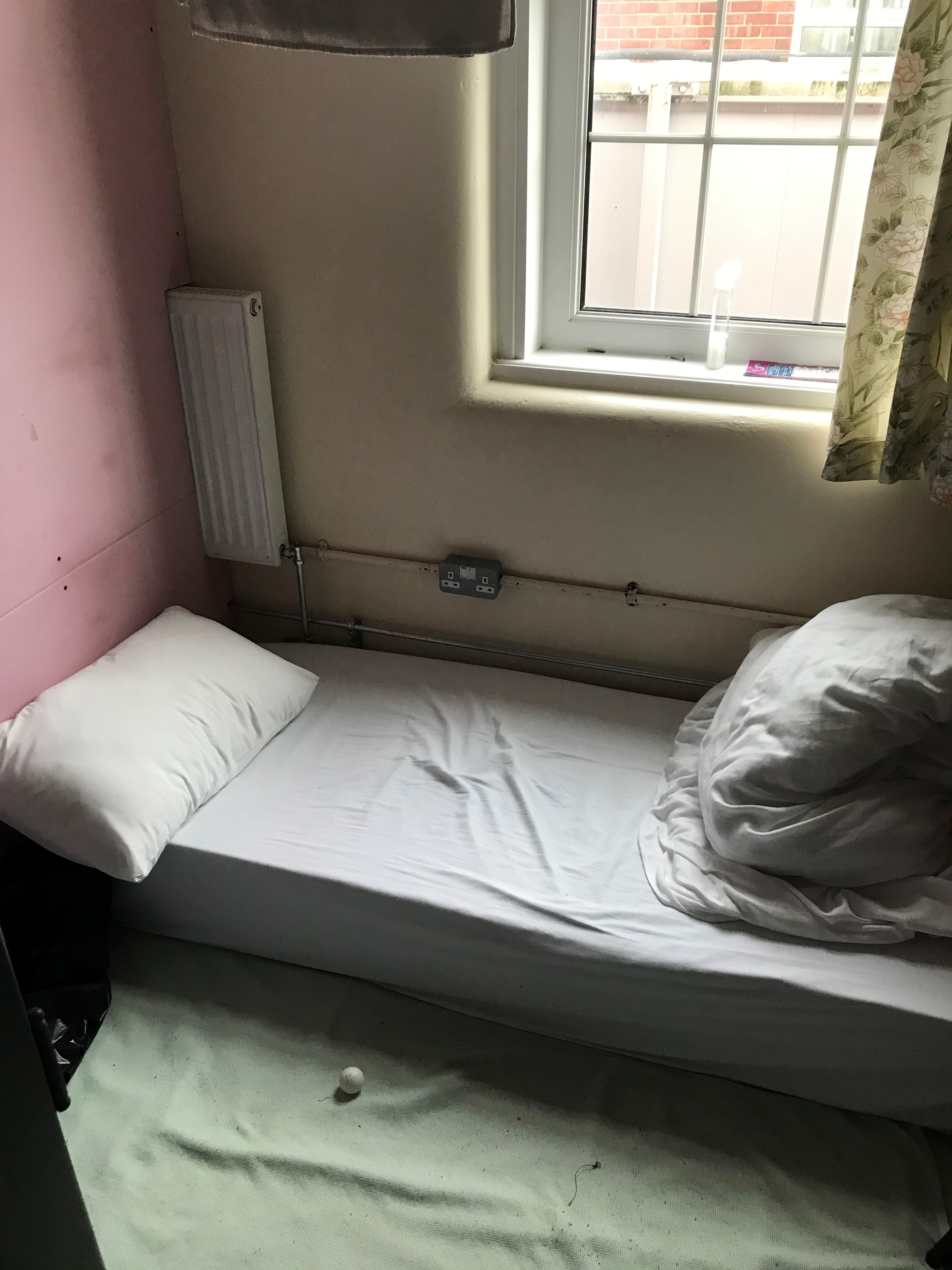
The ICIBI / HMIP investigation includes images that show conditions inside the barracks, e.g. this living and sleeping area inside the Napier Barracks (Credit: ICIBI / HMIP)
It is impossible to separate these comments from the Government’s hostile immigration policy. Internal documents reveal the Home Office’s justification in using the barracks to house asylum seekers, arguing that a more “generous” accommodation could “undermine public confidence in the asylum system”. This suggests more of a concern over public perception of asylum seekers, than provision of their safe and adequate housing.
Other MPs have been vocal in challenging the use of former military barracks as accommodation for asylum seekers. Former Conservative immigration minister Caroline Nokes MP said asylum seekers should not be “segregated into a ghetto”, and accused the Home Office of trying to make the country appear “as difficult and inhospitable as possible” to asylum seekers.
Lawyers representing the six asylum seekers argue that “the accommodation was inadequate, a breach of the Defendant’s own policies, risked of a breach of the Human Rights Act, Articles 2, 3 and/or 8 of the ECHR [European Convention on Human Rights]
Yvette Cooper MP, who chairs the Home Affairs Committee, has also expressed concern with the work of the Home Office. In one meeting she asked, “On what planet did you think, in the middle of a COVID crisis, that it was safe to put over 20 people in a dormitory so that they were all sleeping together in the same room with the same air each night?”
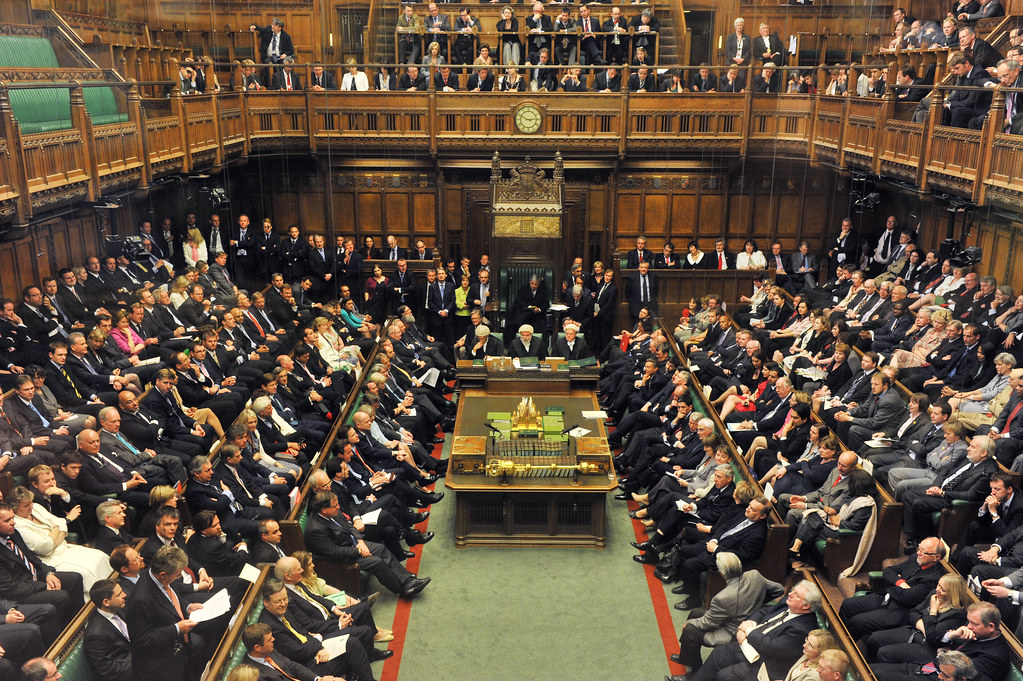
House of Commons (credit: Creative Commons/UK Parliament)
While the Home Office repeatedly insists it followed public health guidance, ICIBI findings revealed that in September 2020, Public Health England (PHE) advised the Home Office prior to asylum seekers being moved into the barracks, that this accommodation was not suitable nor “supported by current guidance”. This advice was not adhered to.
Since these findings were published, the Home Secretary has submitted written evidence to the Home Affairs Committee on the use of the barracks, claiming that the ICIBI findings “do not contradict” what her department has previously said about the barracks.
Cooper in her response expressed reasonable frustration at this claim, insisting that the Home Office must either explain the alleged falsities of ICIBI’s statement or admit PHE guidance was not followed, “They cannot have it both ways.”
Legal challenges
There has been an increasing number of legal challenges to the housing of asylum seekers in disused military barracks.
In early February, the High Court ruled in two cases, one of these a potential victim of trafficking and the second a victim of torture, ordering the relocation of asylum seekers from Napier Barracks into hotel accommodation. These rulings were a recognition of the unsafe, and insanitary “prison-like” conditions asylum seekers housed at the barracks have been describing, and opened the door for further challenges to the use of barracks as accommodation.
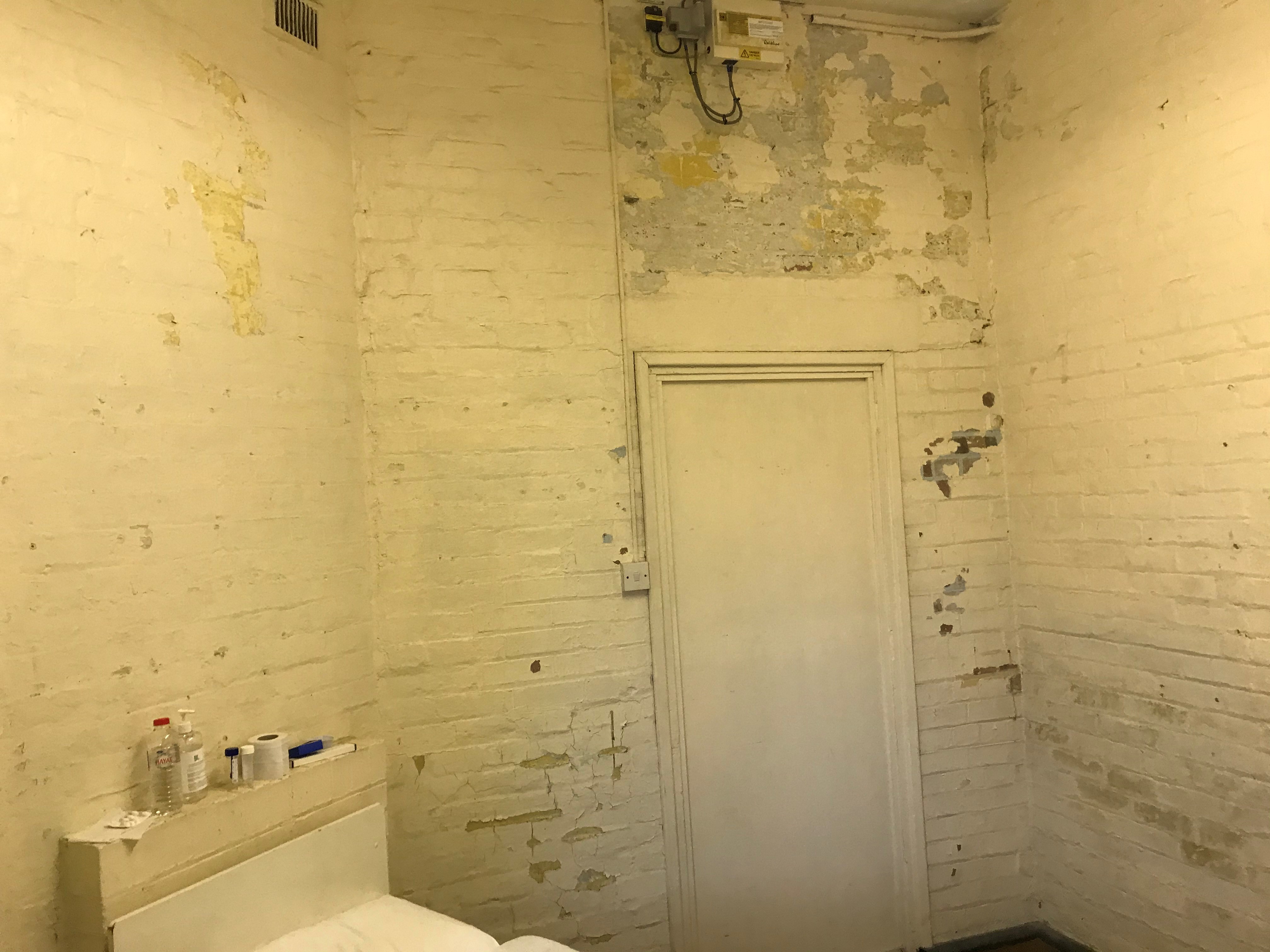
The ICIBI / HMIP investigation includes images that show conditions inside the barracks, e.g. this isolation room (Credit: ICIBI / HMIP)
In a subsequent High Court hearing, six asylum seekers said to be survivors of torture and/or human trafficking, argued that conditions at Napier Barracks breached their human rights and the Home Office’s duty to provide adequate accommodation.
Minutes before the hearing, Home Office lawyers admitted that the use of the barracks to house asylum seekers was arguably unlawful. Judge Martin Chamberlain granted permission for these claims to be considered at a full judicial review of the legality of the use of the barracks.
The judicial review hearing saw the lawyers representing the six asylum seekers argue that “the accommodation was inadequate, a breach of the Defendant’s own policies, risked of a breach of the Human Rights Act, Articles 2, 3 and/or 8 of the ECHR [European Convention on Human Rights], and that the asylum-seekers were unlawfully detained for a period due to a curfew and instructions not to go out at certain times, with a padlock and security guard at the gate.”
What now?
Following the conclusive inspection report on conditions in Penally Camp and Napier Barracks, the Home Office agreed to close Penally by 21 March this year.
Pressure is now on the Government to close Napier Barracks, too. Charities Freedom from Torture, Refugee Action and Choose Love organised a mass virtual lobby of MPs on 19 March as part of a Day of Action to close Napier Barracks. This was accompanied by a petition with more than 45,000 signatures calling on the Home Office to close the camp
The proposal is for a “two-tier” system, differentiating between good refugees deserving of support and bad refugees undeserving, based around how an asylum seeker has entered the UK.
Yet, despite the criticism it has faced, reports suggest the Home Office plans to move hundreds of new asylum seekers to Napier Barracks. The written evidence submitted by the Home Secretary to the Home Affairs Committee includes a “management plan” for the accommodation site, stating: “As of 17th March 2021: 28 residents in each dormitory, socially distanced, which is subject to revision.” The question that arises, again, is how can 28 people in a single dorm be socially distant?
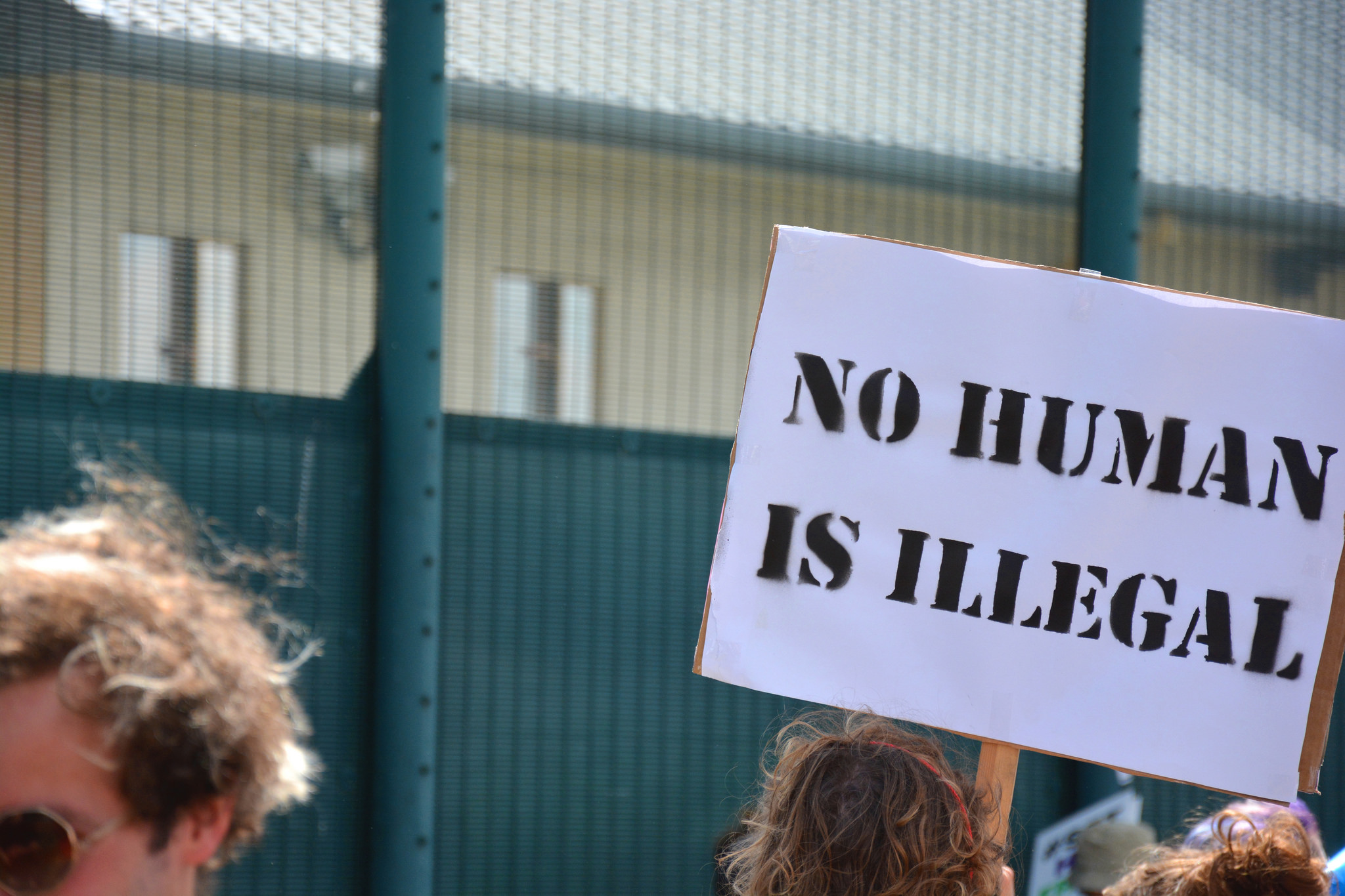
Protesters outside Yarl’s Wood detention centre. Credit: Flickr / idarrenj
In late March, the Home Secretary presented a New Plan for Immigration, describing this as “the most significant overhaul of our asylum system in decades”. While the policy paper hasn’t yet had any legislative change behind it, it offers an insight into her vision for asylum.
Simply put, the proposal is for a “two-tier” system, differentiating between good refugees deserving of support and bad refugees undeserving, based around how an asylum seeker has entered the UK.
In specific terms, those entering through official resettlement routes will be offered indefinite leave to remain and enhanced support, while those arriving in the UK through other routes – regardless of legitimacy of their asylum claim – will be removed or receive a “temporary protection status” with limited rights and entitlements.
The New Plan also reveals the establishment of “new asylum reception centres to provide basic accommodation and process claims”. For asylum seekers who didn’t arrive through official resettlement routes, the centres will be where they are detained awaiting removal.
You can submit your views on these proposed plans by responding to the Government’s consultation. The deadline is 6 May 2021.
The views expressed in this article are those of the author and do not necessarily reflect the views of EachOther.
About ‘The Inspired Source’ Series
This series is part of our work to amplify the voices of aspiring writers who are underrepresented in the media and marginalised by society. Each piece examines a human rights issue the author or their community is affected by and preferably have a position on how we might begin to address it. Find out more about the series and how to send us a pitch on this page.

